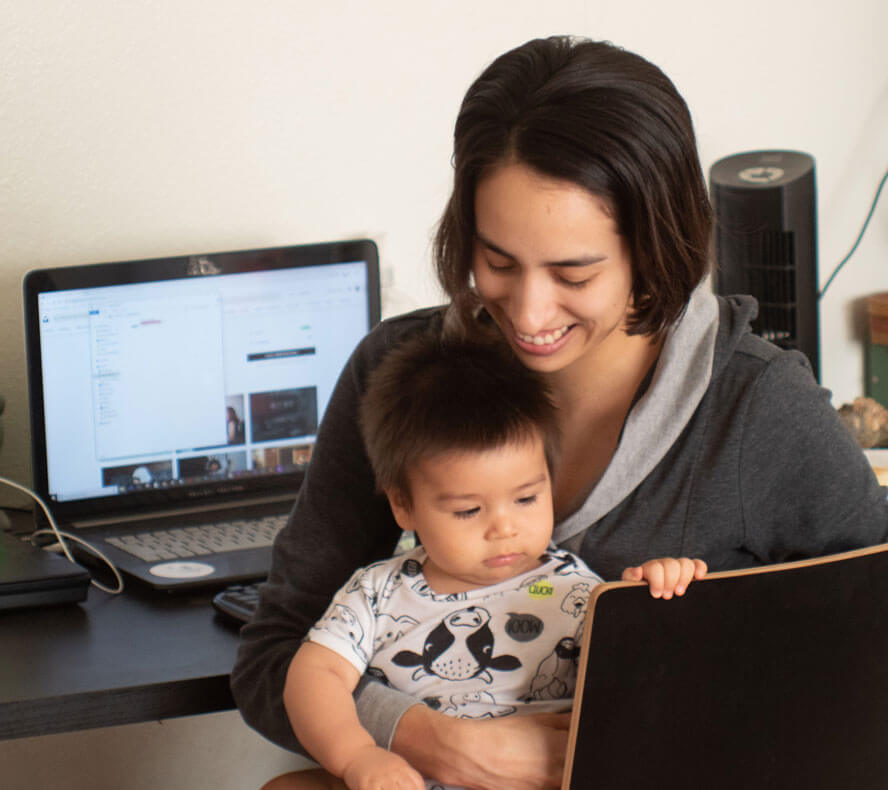As remote working becomes more mainstream, researchers have found new methods, challenges and benefits to working remotely. Reflections were gathered during a special session with the Frontiers community, led by Fiona Samuels, a Senior Research Fellow from the Overseas Development Institute (ODI).
Impacts of remote working on research environments
Inclusion:
Remote working has forged new pathways for inclusion that in-person work did not previously allow. However, researchers should be conscious of the ways remote working has shifted the dynamics between partners, especially concerning ‘on-the-ground’ representatives. Participants noted the changes they have seen in their projects since incorporating remote working:
- Remote working has led to a shift in power dynamics to in-country partners, allowing them to take on more responsibility, become more empowered with greater autonomy and be more invested in projects. Researchers must consider how to maintain these more equitable dynamics in the future.
- Working with community facilitators and giving them more responsibility can help foster communication with local groups. However, this may come with the need for improved capacity building and training. When planning projects, researchers must consider the budget costs of these types of local collaborations and allow adequate time for community-led activities.
Technology:
Thanks to technology, remote work as we know it can result in rich communication and projects previously deemed impossible. Yet, technology is not without drawbacks. Researchers must understand and overcome the obstacles that technology can create when working internationally. Participants discussed the positives and negatives of technology and the ways they have addressed them in their work:
- Technology can facilitate smoother remote working conditions, but it is crucial to choose the right tools that work best for each project. For instance, mobile technology can exclude marginalised communities, such as older women in rural settings who may not have consistent access to mobile technology.

- Consider the mental health implications when asking communities to use technology more frequently.
- Plan for situations where challenges or disagreements must be resolved virtually.
- Be aware that remote tools, like online survey collecting and a stable internet connection, can have financial barriers that limit their usefulness.
Ethics:
Although remote working has allowed researchers to connect across the globe, ethics are critical to the development of research projects. Remote working has removed the person-to-person trust building that typically takes place through in-person meetings.
- Ethics are an especially important consideration in research projects and data collection, as well as in challenging or sensitive topics. Researchers must be careful to inform themselves on the ethics surrounding their planned projects from the onset.
- Trust building is an integral part of the research collection process. Prior to remote working, trust was often built through in-person interaction from both the view of researchers and other groups involved. With remote working, these dynamics have changed. Researchers must invest time to grow relationships and identify the right people for their projects remotely, sometimes even without meeting them face to face.
Flexibility:
Remote working requires flexibility to address an array of needs, backgrounds and tools available. To develop a successful project, researchers must be prepared to adapt to different contexts.
- Flexibility in planning is key, from donor budgeting to timelines.
- Remote data collection requires a more qualitative and creative mindset when designing studies.
- Going forward, researchers must incorporate the learnings and benefits of remote working to merge remote and in-person arrangements.
- When collecting data remotely, the potential distractions that come with working from home must be prepared for. For example, interviewees might be responding from a busy location like a family home.

photo credit: Brian Wangeheim
Tools and tips
The following tools, resources and techniques were identified:
- Combine the best insights from remote working and in-person data collection and tailor them to different projects. This can help overcome challenges that arise from completely remote or in-person work.
- Use high-quality open-source data options. This can help ensure access to all project partners.
- Do not assume everyone involved in a project has the same access to technology and the internet.
- Build in time to get to know collaborators involved on a project. This could look like scheduling ‘ice breakers’ or virtual coffee breaks.
- Tools like Basecamp and shared Google Drives can be helpful to project manage and communicate effectively while working remotely.
- Applications like Google Forms or world can be low-cost, effective tools for data collection.
- Video meeting tools like Zoom, Skype and Microsoft Teams have been critical to remote working, but do not rely on only these applications to build relationships.
Interested in exploring more Frontiers' resources?
For more insights, tools, and tips like the ones in this report, check out all the Frontiers content available in our resources section
